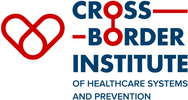Contact:
Project Period
Febuary 2019 - December 2025
Self-efficacy and preoperative expectations of an artificial hip joint

Self-efficacy and preoperative expectations of an artificial hip joint - comparison of German versus Dutch patients
PIs: Martin Stevens, Gesine H. Seeber
Patient satisfaction is an important outcome parameter for a “successful operation”. It is assumed that the pre-operative expectations of patients have a major influence on post-operative satisfaction and the post-operative outcome. Fulfilled expectations are associated with better compliance, whereas unrealistic expectations demotivate patients postoperatively. Self-efficacy, i.e. the subjective feeling of being able to carry out general or specific everyday activities and/or, in the context of arthroplasty, rehabilitation activities following the implantation of an artificial joint, could also play a significant role in the success of the operation and rehabilitation. This has already been proven for other clinical pictures. However, there is not yet enough data available in arthroplasty research to be able to draw precise conclusions. Preliminary results of a country comparison (NL vs. D) of medical rehabilitation after revision of total hip arthroplasty (THA) indicate that Dutch patients are more satisfied than German patients despite significantly less extensive rehabilitation measures. Based on this observation, it can be hypothesized that the preoperative expectation and self-efficacy of patients may be more important for the functional outcome after total hip replacement than the medical rehabilitation measures themselves. In addition, it could be that preoperative expectations of hip replacement differ across countries and/or systems. In this study, we would like to compare data on German and Dutch patients' expectations of a new hip joint and their self-efficacy. The results of such a comparison can provide a deeper insight into possible influences of cultural and/or (health) systemic aspects on the outcome of a total hip replacement. Finally, based on the results in terms of quality assurance, the own performance with regard to preoperative information management in terms of quality assurance should be reviewed, compared and, if necessary, optimized in the further course by implementing suitable measures (e.g. through more extensive/specific/diverse/etc.). Information and patient management relating to the upcoming operation and the subsequent medical rehabilitation).

